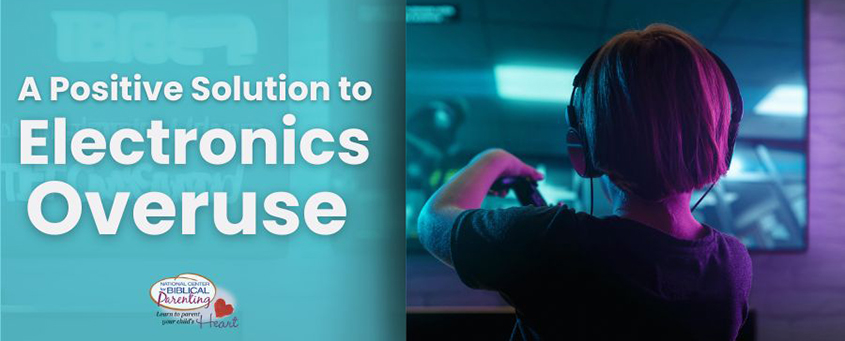When Screens Reinforce Entitlement

A mom once told me, “The minute I say no to the iPad, it’s like a switch flips. My sweet child turns into someone I barely recognize.” Her story is not unique. As parents, we’ve all seen it: the groan, the eye roll, the meltdown, the “but I have to finish this game.” Behind those reactions is something deeper than frustration. It’s entitlement—a powerful heart pattern that screens often expose and reinforce.
And if we want to raise emotionally healthy, spiritually grounded kids in a digital world, we have to deal with it.
What Is Entitlement?
Entitlement is the belief that I deserve something just because I want it. In the case of screens, it often sounds like:
- “But it’s my phone!”
- “Everyone else gets more time!”
- “You’re so unfair!”
- “I need to finish this level or I’ll lose everything!”
The challenge isn’t just that our children want something—that’s normal. It’s the emotional intensity they display when they don’t get it. Entitlement shows up when a child treats access to electronics not as a privilege, but as a right. And it’s often accompanied by demandingness, manipulation, or outright defiance.
That’s when we know we’re dealing with a heart issue.
The Digital World Trains Entitlement
Today’s technology is built for instant gratification. Games reward quickly. Videos autoplay. Notifications constantly buzz for attention. Everything is designed to keep the user engaged without pause.
Over time, this creates a pattern: desire → access → reward. And when that pattern becomes expected, any interruption to it feels like an injustice. That’s how a simple “time to turn it off” can feel like a threat to a child. Their heart has come to expect that pleasure should never be denied.
And that’s a problem.
Because real life doesn’t work that way.
In the real world, people don’t always get what they want. They have to wait. They have to stop. They have to share. They have to submit to authority. And those skills—what the Bible calls self-control—are essential for success in every area of life.
Proverbs 25:28 says,
“Like a city whose walls are broken through is a person who lacks self-control.”
When we allow entitlement to grow unchecked, we leave our children vulnerable—emotionally, relationally, and spiritually.
What Entitlement Teaches Us About the Heart
One of the principles we teach in heart-based parenting is this: Behavior is a window into the heart. Entitlement isn’t just a problem to fix—it’s a message to interpret.
When your child gets angry about turning off the screen, ask:
- What belief is driving this reaction?
- Do they believe they have a right to always feel good?
- Are they convinced that boredom is a problem to escape at all costs?
These are not just surface issues. They’re beliefs of the heart. And our role as parents is not just to manage those behaviors, but to shepherd the heart behind them.
What Parents Can Do
So what’s the answer? How do we address entitlement in a way that doesn’t just create more power struggles?
Here are five heart-based strategies that work:
1. Clarify the Privilege
Start by making it clear: electronics are a privilege, not a right. Talk about this during calm moments, not in the heat of battle. You might say, “In our family, screen time is something we allow because we believe it can be fun and helpful—but it’s not something we’re entitled to. That’s why we use it with boundaries.”
You’re setting a foundation that says: privileges are tied to responsibility.
2. Train for Disappointment
Children need practice handling limits well. That means disappointment has to be part of your parenting plan—not avoided at all costs.
Use small moments to train your child to respond maturely:
- “I know it’s hard to stop. Let’s practice what to say when it’s time to turn it off.”
- “You’re allowed to be disappointed, but not disrespectful.”
Over time, these interactions help your child build the muscles of emotional regulation.
3. Transfer Ownership
If a child isn’t mature enough to use a device responsibly, they’re not ready for the privilege.
One dad told his son, “If you can’t turn off the Xbox without arguing, then maybe you’re not mature enough to use it this week.” That simple statement shifts the responsibility away from the parent’s enforcement and onto the child’s choices.
You’re saying, “This isn’t something I’m doing to you—it’s a result of how you’re managing your role.”
4. Build Integrity and Gratitude
Entitlement and gratitude can’t coexist. One grows at the expense of the other.
Look for ways to build a sense of stewardship: “How can you show appreciation for this privilege today?” and “How can you use this tool in a way that builds trust?”
Affirm your child when you see progress: “I noticed you got off without complaining—that shows maturity.”
Over time, you’re replacing entitlement with ownership, gratitude, and honor.
5. Adjust the Culture of the Home
Sometimes the problem isn’t just the child—it’s the environment. If screens are always on, if every boring moment is filled with a device, then children never learn the value of silence, reflection, or relational presence.
Set rhythms in your home that support emotional growth:
- No screens at dinner
- A screen-free hour before bed
- Sabbath-style rest days
These habits remind the family that people are more important than pixels.
A Heart-Based Vision for Growth
Dealing with entitlement is not just about enforcing boundaries—it’s about discipling the heart. Every screen-time conflict is a chance to shape character, reinforce truth, and build wisdom.
Galatians 6:9 encourages us:
“Let us not become weary in doing good, for at the proper time we will reap a harvest if we do not give up.”
That applies to parenting too.
You may not see the results right away. But every time you calmly stand your ground, invite conversation, and lead with grace and strength, you are planting seeds. And over time, those seeds will grow.
You’re not just raising a child who knows how to follow screen rules.
You’re raising a person who knows how to handle life when things don’t go their way.
A person who learns that joy doesn’t come from unlimited access—but from a heart that’s trained to value what matters most. And that’s a victory worth pursuing.











Leave a Reply
Want to join the discussion?Feel free to contribute!